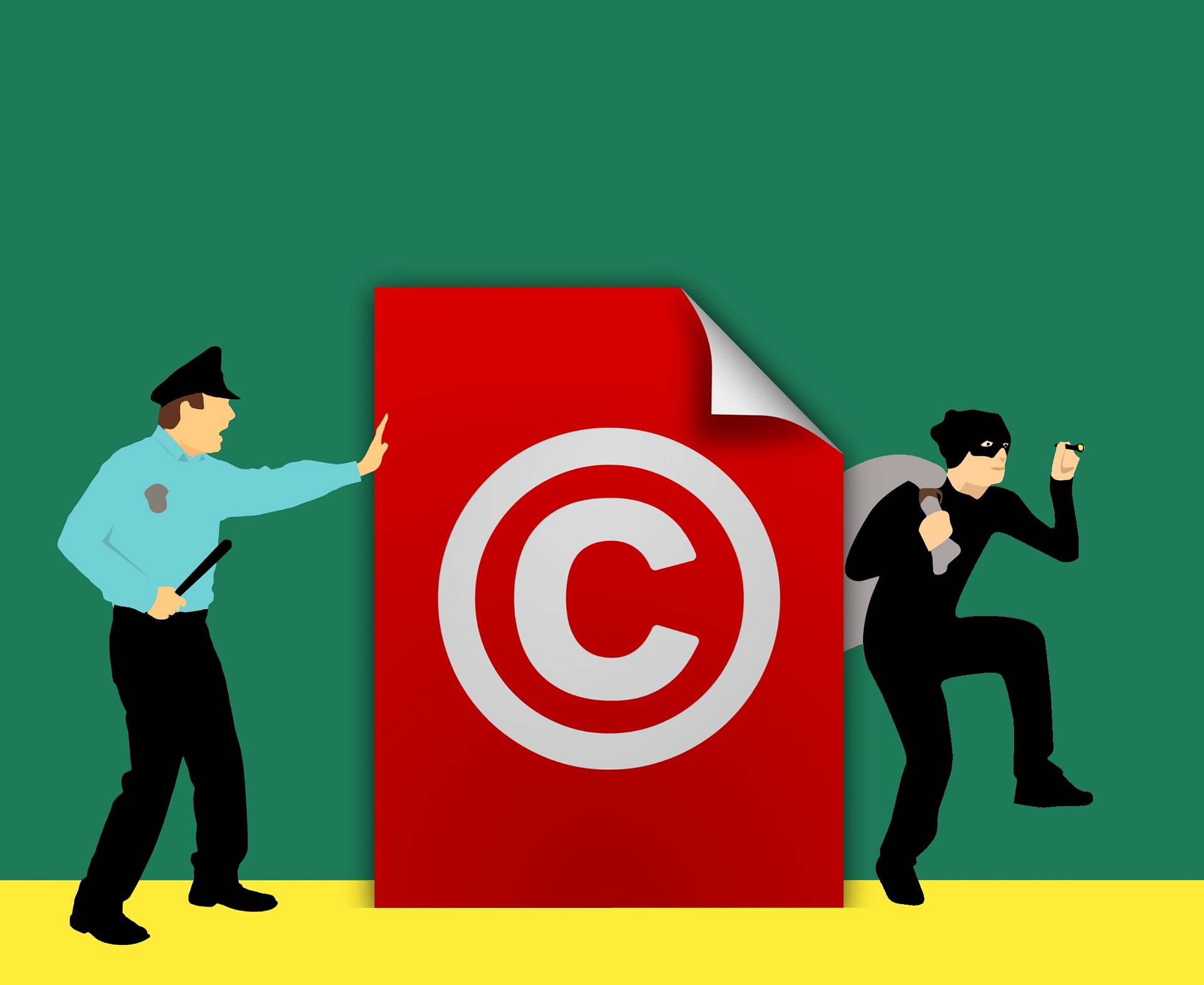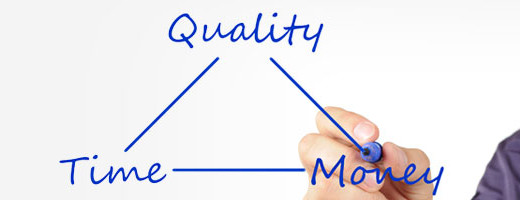How to Protect Your Digital Work from Copyright Theft
0The advent of the internet, very rightly known as the World Wide Web, has opened up the entire world to us. We have almost everything at our fingertips now. We can explore places, things, ideas, people, and so many things directly via a screen. We are now able to interact with absolutely anyone living in even opposite sides of the world, directly via the internet and technology.
When it comes to sharing our work and expanding our business, the concept of digital work has slowly become very popular. Although it is not a very old concept, it has taken over the world by fury. Now, people like artists, musicians, business owners, authors, even teachers, and professors can share their work online. This is advantageous as the digital platform helps us expand our reach to audiences across the globe. It is also quite a cost-effective technique to reach out to people, as well as allowing others to reach out to us. Information sharing has become increasingly comfortable with the advent of digital work.
As we are becoming more aware of the advantages of digital work and digital platforms, it is essential also to understand the disadvantages and threats that one can face.

What is digital work?
Digital work is defined as any work created by the human brain and digital media, which produces an experience or idea on a digital platform. The most natural examples of digital work can be paintings, comics, or even movies and animation created by artists on digital media (computers, laptops, tablets, phones). Digital work can also be created by transferring physical tasks into a digital platform. Pre-existing poems, books, artwork, movies can be transferred into a digital format as well.
Understanding copyright
When you are creating any digital work, you will need to familiarize yourself with the concept of IP or Intellectual Property. Intellectual property refers to any property which is created out of artistic or creative processes. It can be a novel, an artwork, a poem, a piece of music, a movie, etc.
Any invention or creation of one’s mind can also be known as intellectual property.
When you are creating your websites and pages where you share your intellectual property, you are opening up your work to millions of people online. It is an excellent way to share your work, but it is also the right way for other people to steal your work.
When we think of the word ‘theft,’ we think in terms of someone stealing out a physical property, our belongings, etc. However, out here in the digital world, theft refers to the stealing of intellectual property.
In simple terms, if you own the intellectual property for particular digital work, then you are legally free to do anything you want with it. In the same way, someone who does not have IP rights to a specific digital work cannot do whatever they wish to with it, without the permission of the owner.
While borrowing or using digital content is not illegal, there is a right and wrong way to do it. In case someone takes hold of some digital work that you have created and tries to sell it, utilize it or use it in any way without your permission, it can be considered a copyright theft, and it is illegal to do so.
Here are some things that you can do to protect your digital work from copyright theft.
Protecting your digital content from copyright theft:
- Placing a copyright notice at the bottom of your page
Placing a copyright notice at the end of your page will not automatically guarantee that your work will not get stolen. However, it can reduce the frequency and risk of this happening. When people notice the copyright notice at the bottom of your page, they will instantly understand that you have some basic knowledge about your rights and the legality of the matter.Now, the good news is that as soon as you upload your original content on a website, you immediately own the copyrights to it! You will have to meet two basic requirements to own copyrights to your work:
- The digital work that you upload should be wholly original, and your creation. If your work is plagiarized from someone else’s work, copied, or even not your own brain’s production, then it will not be considered as original and authentic work.
An example of this is in case you decide to write a short story, a poem, or a piece of music or art, and you upload this online. As soon as you upload it, you immediately own the copyright. You do not need to apply for copyrights, sell the work, or register anywhere. Merely creating the work on your own and uploading it gives you the copyright. - You need to attach your creation or your work to some medium. This can be on a piece of paper, a sheet, a digital medium, or any tangible medium. As soon as your creation has a tangible or physical form, you own its copyrights.
- The digital work that you upload should be wholly original, and your creation. If your work is plagiarized from someone else’s work, copied, or even not your own brain’s production, then it will not be considered as original and authentic work.
- Create original content under SEO guidelines
SEO or Search Engine Optimization is not something that you are expected to know right off the bat. It is something you will have to research and study. In general, what you need to know is that as long as you create high quality, original content, you will rank higher in Google search results. By plagiarising content, you will automatically end up at a loss, as Google will rank your website lower, and you will not gain excellent visibility amongst audiences.Other than merely creating unique and original content, you also have to ensure that your content is of high quality. Although this seems like more effort and work, it will pay off at the end, as you will gain higher visibility. It will also ensure that in case your work is plagiarized by thieves, they do not gain anything by doing so.
- Understanding your rights
Simply creating original content and uploading it is not enough. Although this gives you full rights and ownership over your digital content, it still cannot protect you in case of theft occurs. For this, you will have to opt for copyright registration.Although you do not legally need to register your work to own your copyrights, you will need to register your work if you want to file a lawsuit and protect your work from theft.
You can register your work through email or online, and you will be required to pay a certain amount for it. You can also hire an attorney to do this for you, and you will receive a notification after it is complete. It takes between 6 months to 15 months for the registration to complete.
What you can do in case of copyright infringement
In case someone has stolen your digital work or done some copyright theft or infringement, you can take specific legal actions. Once you do this, several things might happen:
- Injunction
This means that you can, by law, order someone to stop infringing your work. In case you find that someone has stolen your digital work and is using it on their website to make a profit without your permission, then you can, by law, ask them to stop selling your intellectual property. In case they refuse, it can even lead to a criminal charge. - Actual damages
You might get the actual monetary compensation in case you have had damages or lost profits or money due to the copyright infringement. In this case, the infringer or the thief will be asked to compensate or pay you actual damages for what you have lost. - Profit
In case the thief or the infringer has gained any profits from the stolen property, then you are entitled to those profits. However, you can receive these profits in case they are more than the actual damages. So in case the infringer has paid you a certain amount of money in actual damages, but they have also made profits on your digital work, then you have legal rights over those profits also.
Other kinds of copyright infringement
In case you or someone else has some digital work or intellectual property that is not owned by them, and they decide to remove the copyright notice and sell it, it is considered copyright infringement.
To top it, if the thief adds their copyright over your digital work, claiming it is their work, then it is a further offense, with its punishment.
Conclusion
It is essential to know your rights when you are dealing with digital work and intellectual property. Only once you know your rights will you know how you can protect yourself against thieves online.
Keep in mind that copyright does not last forever. Typically, the copyright will last until 70 years after your death, after which it will expire.
When you are creating digital work and posting them online for your profits, you should know about copyrights and also how someone can infringe them. You can always take professional help in case of any issues or doubts. It is crucial to seek legal advice as soon as possible if you’ve been a victim of copyright theft.




